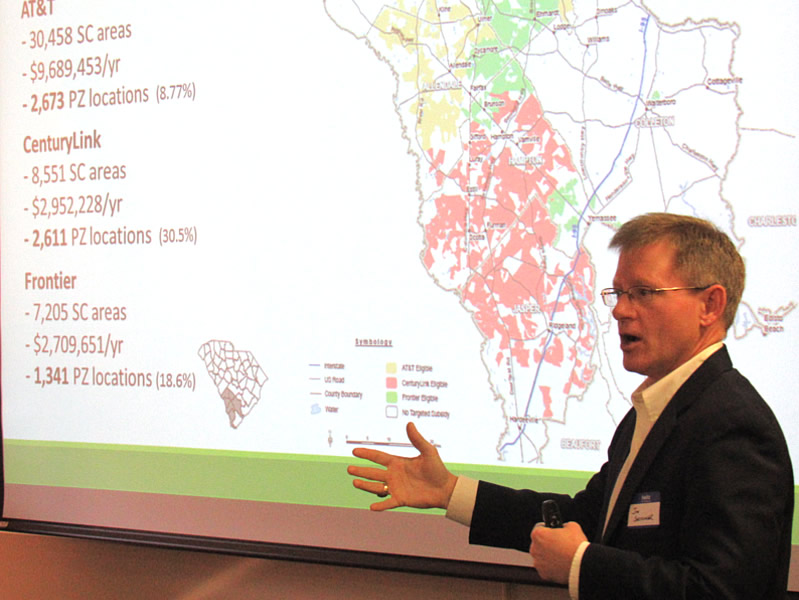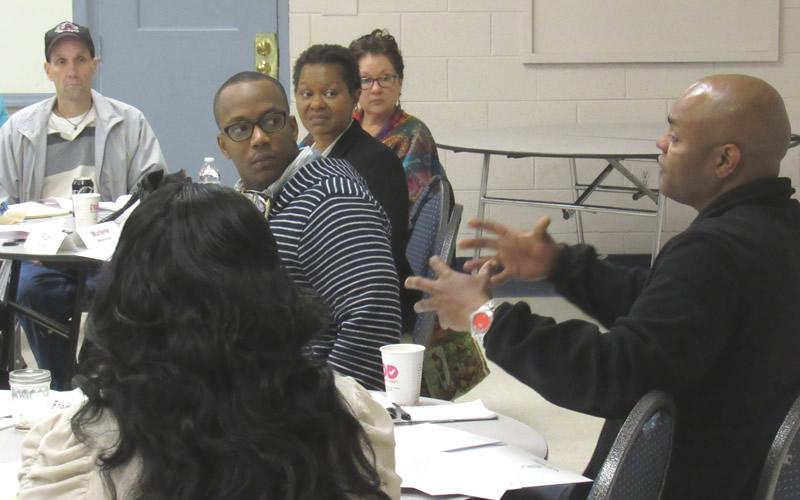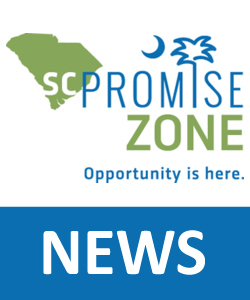
Patterson explains the grant-writing process to a group at the Lowcountry Council of Governments in Yemassee. Photos by Andy Brack.
APRIL 24, 2017 | More than 30 people received grant training in classes last week in Bamberg and Yemassee to help give area leaders more confidence and tools to submit more applications for funding. The classes, taught by South Carolina native Patrick Patterson of Global Partners for Fathers & Families, were funded through a technical training grant to the Center for a Better South by the U.S. Department of Agriculture.
In the months ahead, the Center for a Better South plans to have more classes to teach nonprofit and entrepreneurial skills to people who live and work in the Promise Zone, a federal designation that benefits persistently challenged counties in the federal grant process. The next class on May 9 is an Entrepreneurial Boot Camp. (Note: This class is full.) Read more



